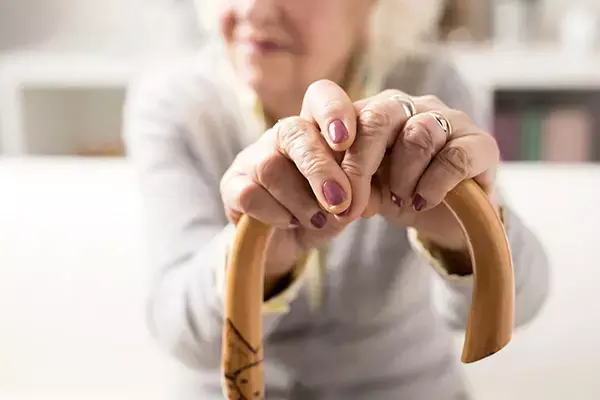- Home
- Medical news & Guidelines
- Anesthesiology
- Cardiology and CTVS
- Critical Care
- Dentistry
- Dermatology
- Diabetes and Endocrinology
- ENT
- Gastroenterology
- Medicine
- Nephrology
- Neurology
- Obstretics-Gynaecology
- Oncology
- Ophthalmology
- Orthopaedics
- Pediatrics-Neonatology
- Psychiatry
- Pulmonology
- Radiology
- Surgery
- Urology
- Laboratory Medicine
- Diet
- Nursing
- Paramedical
- Physiotherapy
- Health news
- Fact Check
- Bone Health Fact Check
- Brain Health Fact Check
- Cancer Related Fact Check
- Child Care Fact Check
- Dental and oral health fact check
- Diabetes and metabolic health fact check
- Diet and Nutrition Fact Check
- Eye and ENT Care Fact Check
- Fitness fact check
- Gut health fact check
- Heart health fact check
- Kidney health fact check
- Medical education fact check
- Men's health fact check
- Respiratory fact check
- Skin and hair care fact check
- Vaccine and Immunization fact check
- Women's health fact check
- AYUSH
- State News
- Andaman and Nicobar Islands
- Andhra Pradesh
- Arunachal Pradesh
- Assam
- Bihar
- Chandigarh
- Chattisgarh
- Dadra and Nagar Haveli
- Daman and Diu
- Delhi
- Goa
- Gujarat
- Haryana
- Himachal Pradesh
- Jammu & Kashmir
- Jharkhand
- Karnataka
- Kerala
- Ladakh
- Lakshadweep
- Madhya Pradesh
- Maharashtra
- Manipur
- Meghalaya
- Mizoram
- Nagaland
- Odisha
- Puducherry
- Punjab
- Rajasthan
- Sikkim
- Tamil Nadu
- Telangana
- Tripura
- Uttar Pradesh
- Uttrakhand
- West Bengal
- Medical Education
- Industry
Frailty screening has no benefit over geriatric-assessment in elderly patients with solid tumors

According to a new study Frailty screening has no benefit over geriatric-assessment in elderly patients with solid tumors. The study conducted by Adolfo González Serrano and team found that frailty screening tests demonstrated acceptable diagnostic accuracy, but there were no clinical advantages over the geriatric-assessment-for-all approach.
The findings of this study were published in the Journal of Clinical Oncology.
The geriatric assessment (GA) might reveal age-related problems including frailty that were previously unnoticed. In elderly cancer patients, GA determines the choice of treatment, directs geriatric treatments, and forecasts mortality and chemotherapy side effects. The goal of frailty screening is to identify elderly people who need geriatric evaluation and to stop needless GA in healthy patients. This study was done in order to confirm the aforementioned claim since the sensitivity and specificity of screening tests are what these theories rely on, but they have not been validated.
Outpatients with prostate, breast, colorectal, or lung cancer who were under the age of 70 and participating in the ELCAPA cohort study between February 2007 and December 2019 underwent a cross-sectional analysis. On the basis of the GA findings, the diagnostic efficacy of the G8 Geriatric Screening Tool (G8) and modified G8 scores for detecting unsuitable people was assessed. In order to determine the value of frailty screening for identifying unfit patients and preventing needless GA in fit individuals across various threshold probabilities, decision curve analysis was utilized.
The key findings of this study were:
1. Among the 1,648 patients we included, 1,428 (87%) were deemed unsuitable (median age, 81 years).
2. For G8 and the modified G8 score, the sensitivity and specificity were 85% and 59%, respectively.
3. At a threshold probability of 0.25, the net benefit (NB) for decision curve analysis' identification of unsuitable individuals was 0.72 for G8, 0.72 for the modified G8, and 0.82 for GA.
4. The NBs were 0.71, 0.72, and 0.80 at a threshold probability of 0.33, respectively.
5. The NBs were 0.68, 0.69, and 0.73 at a threshold probability of 0.5, respectively.
6. At predetermined threshold probabilities, no screening tool decreased the need for needless GA in fit individuals.
In conclusion, frailty screening did not outperform a GA-for-all approach for identifying unfit patients or avoiding GA in fit patients, despite the screening instruments' high diagnostic accuracy. Improving decision-making for older cancer patients in busy practices with constrained staff members requires optimizing current frailty assessment tools and assessing their value with NB methodologies.
Reference:
González Serrano, A., Laurent, M., Barnay, T., Martínez-Tapia, C., Audureau, E., Boudou-Rouquette, P., Aparicio, T., Rollot-Trad, F., Soubeyran, P., Bellera, C., Paillaud, E., & Canouï-Poitrine, F. (2022). A Two-Step Frailty Assessment Strategy in Older Patients With Solid Tumors: A Decision Curve Analysis. In Journal of Clinical Oncology. American Society of Clinical Oncology (ASCO). https://doi.org/10.1200/jco.22.01118
Neuroscience Masters graduate
Jacinthlyn Sylvia, a Neuroscience Master's graduate from Chennai has worked extensively in deciphering the neurobiology of cognition and motor control in aging. She also has spread-out exposure to Neurosurgery from her Bachelor’s. She is currently involved in active Neuro-Oncology research. She is an upcoming neuroscientist with a fiery passion for writing. Her news cover at Medical Dialogues feature recent discoveries and updates from the healthcare and biomedical research fields. She can be reached at editorial@medicaldialogues.in
Dr Kamal Kant Kohli-MBBS, DTCD- a chest specialist with more than 30 years of practice and a flair for writing clinical articles, Dr Kamal Kant Kohli joined Medical Dialogues as a Chief Editor of Medical News. Besides writing articles, as an editor, he proofreads and verifies all the medical content published on Medical Dialogues including those coming from journals, studies,medical conferences,guidelines etc. Email: drkohli@medicaldialogues.in. Contact no. 011-43720751


